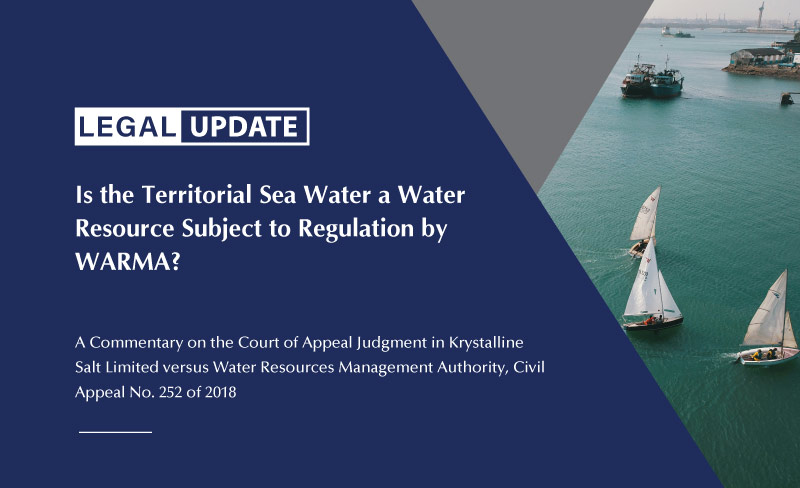“We entertain no doubt that the water that the Appellant uses for its salt production is part of Kenya’s territorial waters (Sea) and is not res nullius (a thing with no owner) but res publicae (a public thing) and thus its usage is subject to control by the Laws of Kenya.” Paraphrased
D.K Musinga, H.A Omondi & Ngenye Macharia, JJ.A.
INTRODUCTION
The three (3) wise Judges of the Court of Appeal have made a cardinal observation that indeed human beings have for centuries exploited the enormous resources that are found in the sea better referred to as the Heart of Planet Earth which include, inter alia, fish, rare earth minerals, marine energy, oil and gas hydrates. However, the question that lingers in mind is to whom does these God given resources belong to and how should their use be regulated.
In addressing this query, the Appellate Court has gone far and wide in referencing the International Conventions such as the United Nations Convention on the Law of the Sea (UNCLOS) ratified by Kenya in 1989 and the Geneva Convention on Territorial Sea and the Contiguous Zone, 1958. The Court has also delved into the domestic laws such as the repealed Water Act 2002, the Water Act 2016, the Maritime Zones Act, 1989 and the Water Resources Management Rules 2007.
Accordingly, this update shall endeavor to reflect on the decision and lay out the jurisprudential principles set thereto.
A BRIEF SUMMARY OF THE CASE
High Court
WARMA initiated a Suit vide seeking to recover from Krystalline Ltd a sum of Kshs. 2,079,455,000/= being outstanding water use charges for 9 and 1/2 years from October, 2007 to March, 2017 together with interests as per the WARMA Rules of 2007. The charges payable by water user as per the Legal Notice No. 171 of 2007, was 50 cents per 1 M3 of raw water abstracted.
Upon the failure by Krystalline Ltd to furnish an estimate for purposes of levying charges, WARMA calculated the dues payable based on the data provided online by the company on the minimum production of 350,000t of salt per year thus arriving at a bill of Kshs. 2,079,455,000/=. In addition, WARMA contended that Krystalline Ltd was obligated by law to pay a fixed permit fee of Kshs. 135,000/= per year for abstraction of sea water.
On its defence, Krytalline held that WARMA was not mandated to regulate the use of sea water thus it was not under any legal obligation to apply for a permit nor make payment for abstraction of sea water. It also argued that the claimed amount was not based on concrete empirical and provable data thus untenable.
At the hearing, Justice Bor, in the company of parties and their representatives made a visit to the Salt extraction plants and prepared a site visit report to that effect. Upon considering submissions by both parties, the court entered judgment as prayed by WARMA.
Court of Appeal
Aggrieved by the Judgment, Krystalline approached the Court of appeal on 12 solid grounds and which were later condensed into 6 grounds for determination. These were;
(a) Whether WARMA was entitled to recover any amount at all for the use of sea water and whether sea water is res nullius;
(b) Whether territorial Sea Water is a water resource;
(c) Whether the company used sea water to produce salt;
(d) Whether the parcels of land on which the company produces salt are private and thus excluded by Section 3 of the Water Act 2002 from the provisions of the Act;
(e) Whether WARMA’s estimation of the volume of sea water used by the company and the amount claimed was lawful, fair and final and finally
(f) Whether WARMA was entitled to compound interest of the amount claimed.
Holding of the Court of Appeal
i) Sea water resources are res nullius
In its determination, the Court of Appeal held that under the 1958 Geneva Convention on Territorial Sea and the Contiguous Zone and in particular Articles 1 and 2, only waters of the high seas may be referred to as res nullius. Further, the court referenced Article 3 of the United Nations Convention on the Law of the Sea (UNCLOS) which limits a country’s territorial sea to 12 nautical miles from the coastline. Accordingly, the judges came to solid conclusion that the water abstracted by Krystalline Ltd for its salt production was Kenya’s territorial waters thus not res nullius. On the same breath, the court held that WARMA is entitled to develop principles, guidelines and procedures to govern usage of territorial sea water.
ii) Sea water is a water resource
The Court based its holding on Section 2, 3 and 4 of the repealed Water Act, 2002 and held that territorial sea water is a water resource. Upon making this finding, the court emphasized that Article 2 (1) of UNCLOS grants Kenya jurisdictional control over territorial sea water which is a water resource for all its purpose and intent.
The court upheld that Krystalline uses sea water to extract sale and this was evidence by the trial court’s site visit report. Thus, the company’s argument that the sea water found its way naturally on its parcels of land fell flat out.
iii) WARMA is allowed to make estimates for purposes of billing
The court upheld that WARMA is allowed to make estimates in instances where no self-assessment is made by water users and also where no agreement on assessment of the quantity of water used has been arrived at. Thus, the estimation by WARMA prevailed in the circumstances.
iv) WARMA is limited to recover arrears for a period of 12 months
The Court upheld that Rule 107 of the Water Resources Management Rules, 2007 sets a time limitation for charges payable to WARMA at 12 months. Thus, the court reduced the amount awarded to Kshs. 185,000,000/=.
On the issue of compound interest, the court held that Rule 114 does not stipulate payment of the same and accordingly made an award on simple interest at the rate of two (2) percent. The court also upheld the award of Kshs. 135,000 per year being fixed permit fees stipulated in the Legal Notice 171 of 2007.
JURISPRUDENTIAL SIGNIFICANCE OF THE CASE
1. Kenya’s territorial sea water is res nullius and its usage whether commercial or otherwise attracts regulation by the Laws of Kenya.
2. WARMA is fully mandated by the Water Act, 2016 to develop principles, guidelines and procedures to govern usage of territorial sea waters.
3. That sea water is a water resource vested in the state and whose usage is strictly regulated by the Water Act and other written law for that purpose.
4. Rule 107 of the Water Resources Management Rules, 2007 sets a time limitation regarding a claim for arrears of use of water by a permit holder or a person required to have a permit or who is obliged to pay water charges but has failed to do so. That time limitation is capped at twelve (12) months.
This article is provided free of charge for information purposes only; it does not constitute legal advice and should be relied on as such. No responsibility for the accuracy and/or correctness of the information and commentary as set in the article should be held without seeking specific legal advice on the subject matter. If you have any query regarding the same, please do not hesitate to contact Litigation Department at Litigation@wamaeallen.com
 Loading...
Loading...
About the author
Caxstone specializes in civil, employment and labour disputes, constitutional law, family law and succession, and environment and land matters. He has amassed a wealth of knowledge and experience in litigation which is evident in the successes obtained for clients. He is an active member of the Employment and Labour Relations Court Bar-Bench committee.
Denis Mutugi specializes in Commercial Litigation and Alternative Dispute Resolution.
Denis graduated with a Bachelor of Laws, LLB (Hons) from The University of Nairobi in 2021 and was admitted to the Roll of Advocates of the High Court of Kenya in the year 2023.
Denis has amassed a considerable wealth of experience in conducting legal research on various complex legal matters touching on Commercial, Insurance, Employment and Insolvency law and bankruptcy.













